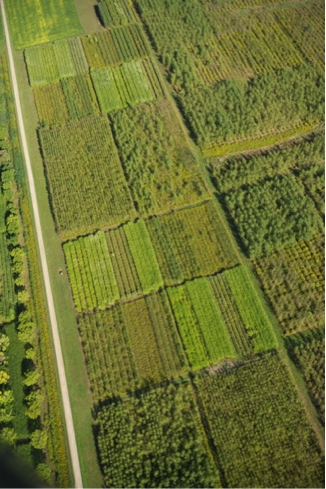In Canada, it has been estimated that 90% of the biomass available for biofuels is lignocellulosic. Within this context, the viability of the biofuel / biomass industry will depend on an uninterrupted supply of feedstock for the conversion of lignocellulose to biofuel or for direct combustion to derive heat and/or electricity. Therefore, long-term research trials are essential in various eco-regions, especially those with marginal soils (Canada Land Inventory classes 3 and 4). These trials provide an opportunity to determine the productivity and sustainability of woody biomass under various conditions.
The University of Guelph established its first long-term woody biomass research infrastructure in 2005 with funding obtained from the Canadian Wood Fibre Centre (CWFC), Natural Resources Canada (NRCan), Canadian Biomass Innovation Network (CBIN), Agriculture and AgriFood Canada (AAFC), Ontario Centre of Excellence (OCE) and the Ontario Ministry of Agriculture and Food (OMAF). In 2009 and in 2014, with funding from the CWFC and BioFuelNet Canada, the University of Guelph expanded the size of its research trials (see photo). Currently, the total extent of the research infrastructure is 24.3 hectares (60 acres), which is Ontario’s largest purpose-grown, woody biomass research initiative.
In the last 10 years, numerous research questions have been addressed in relation to: a) biomass crop establishment, b) life cycle analysis (LCA), c) nutrient cycling dynamics and d) fertilization effects on biomass production and greenhouse gas emissions. Some of the research findings from the above studies are cited in Cardinal et al., 2012, Thevathasan et al., 2012, Clinch et al., 2009, and Thevathasan and Gordon, 2004. The reader can also view our research initiatives on YouTube:
www.youtube.com/watch?v=k5oxiSTcycE
www.youtube.com/watch?v=yeNkFm3XMpw




